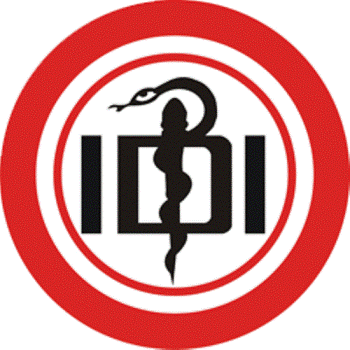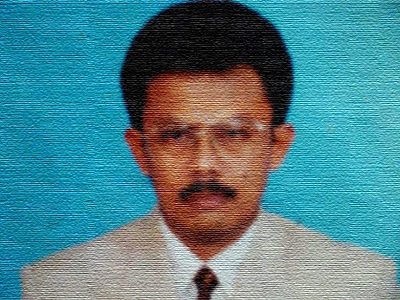EndometriosisZONE.org
Clinical Case Report Abstract From
Laparoscopic intraperitoneal injection of human interferon-alpha2b in the treatment of pelvic endometriosis: a new modality
Ali AF; Fateen B; Ezzet A; Badawy H; Ramadan A; El-tobge A Infertility Research Center, Cairo, Egypt.
Obstet Gynecol 2000 Apr 01;95 Suppl 1(4):S47-S48 (ISSN: 0029-7844)
Visit Mosby's Periodicals online for the latest coverage in the medical field, from the newest diagnostic procedures to leading-edge research. This abstract report © by Mosby, Inc. All rights reserved.
Provided for educational and discussion purposes only.
--------------------------------------------------------------------------------
Background: Some reports have stated that an immunologic alteration plays a role in the development and progression of endometriosis. Once endometrial cells are implanted ectopically, they may produce additional changes through a defect in cellular or humoral immunity. Natural killer cell, cytokines, and peritoneal macrophages could determine the role of progression of the disease. Therapeutic manipulation of the immune system in patients with endometriosis may be worth mention. Braum et al (1992) suggested that macrophage activators such as interferons (IFNs) could be useful in addition to hormone suppression therapy, to control and eliminate the growth of endometrial ectopic tissue.
Objective: To use for the first time laparoscopic intraperitonal injection of human IFN-alpha2b in the treatment of pelvic endometriosis.
Methods: Twenty-five infertile women were enrolled in the study. They had pelvic endometriosis. The diagnosis was based on laparoscopy, and CA 125 was measured in all cases. They were classified as the following: Stage II-mild endometriosis (5 cases), Stage III-moderate endometriosis (10 cases), and Stage IV-severe endometriosis. We proposed a protocol of dosage system. For Stage I-we used 3 million IU of IFN-alpha2b, for Stage II-6 million units, for Stage IV-12 million IU. We directly injected the dosage through laparoscopy. Objective measurement for evaluating the implant growth depends on the measurement of the largest diameter and change of the degree of the stage of endometriosis. Second-look laparoscopy was done 3 months later in all patients and CA 125 measurement was also done. All the patients were evaluated clinically for dyspareunia, painful defecation, and progressive dysmenorrhea. Vaginal examination was done for cul-de-sac induration, fixed ovarian masses, and uterosacral ligament nodularity.
Results: There was a statistically significant (P <0.05) decrease in all symptoms and signs after treatment; the decrease was proportional to the size and diameter of large implant and the degree of endometriosis. There was a statistically significant decrease in the level of CA 125 after treatment (P <0.001). On laparoscopy, there was diminution of the stage of disease. Grade II changed to grade I, grade III changed to grade II, and grade IV changed to grade III. Complete disappearance of disease was noted in 2 cases in grade II (20%) and in 2 cases in grade III (10%). In grade IV, there was no reported case of complete disappearance of endometriosis. Cumulative pregnancy rate in all three stages after treatment was 33.3%. No reported side effects of treatment were noted.
Conclusions: Human IFN-alpha2b immune stimulatory therapy significantly reduces the symptoms of endometriosis. Reduce the stage of the disease, reduce CA 125 level, reduce the size of implant, and improve the pregnancy rate, so we can say that this line is a break treatment in the field of endometriosis. More studies are needed; closed, double-blind, controlled, randomized studies are needed for better evaluation of the results of treatment.
Language: English
Publication Type: JOURNAL ARTICLE; RECORD SUPPLIED BY PUBLISHER
PreMedline Identifier: 0010729506
© www.EndometriosisZone.org
BLOG DOKTER SPESIALIS KEBIDANAN DAN PENYAKIT KANDUNGAN ( Obstetric's & Gynecologist Blog ) Sumatera Barat.,Indonesia
SAVE YOUR BABY'S, SAVE NEXT GENERATION'S
SAVE YOUR BABY'S, SAVE NEXT GENERATION'S
Search This Blog
- Universitas Andalas Website
- TRIGEMINAL NEURALGIA LECTURES AND TREATMENT
- Maternal and Child :Research and Article
- dr Firman. Abdullah SpOG/ OBGYN .Personal Edition
- dr Firman Abdullah SpOG / ObGyn.com
- Dr Djohanas Djohan Abdullah Memorial Hospital.com
- Bukittinggi International Hospital.com
- Aliansi Rakyat Anti Korupsi Bukitinggi.com
Jam Gadang.Bukittinggi. Sumatera Barat .Indonesia
24.jpg)

Bung Hatta statue ,Bukittinggi
About me.....
IKATAN DOKTER INDONESIA (IDI).Sumatera Barat

INDONESIAN MEDICAL ASSOCIATION
ASSALAMUALAIKUM........
dr Firman Abdullah SpOG / OBGYN
Peer - Review..Cyberounds
Blog Archive
-
►
2008
(1)
- ► March 2008 (1)
-
▼
2009
(387)
- ► April 2009 (87)
-
▼
May 2009
(91)
- World Health Day 2009 ' Save Lives. Make hospitals...
- Pelvic exercises 'can help with childbirth and rec...
- More hysterectomy patients 'keeping cervix'
- Ovary removal 'may increase associated health risks'
- 'Fat gene' associated with PCOS
- Obese women 'at increased risk of birth defects'
- Resolution on Female Genital Mutilation
- Newborn babies have got rhythm, according to study
- Breastfeeding 'key during first six months'
- Mothers 'need breastfeeding support'
- Baby dies after receiving kiss infection
- Yoga 'can reduce menopause symptoms'
- ACOG President Advises Against Unnecessary Obstacl...
- Asoprisnil looks promising for endometriosis and u...
- Drospirenone and estradiol: a new option for the p...
- Endometriosis Surgery, State of the Art
- A call for centres of excellence to treat endometr...
- A Gonadotrophin-releasing Hormone Agonist compared...
- Accuracy of laparoscopic diagnosis of endometriosi...
- ACOG issues new practice bulletin on chronic pelvi...
- Adhesions in relation to laparoscopic surgery for ...
- Adolescent endometriosis
- Aromatase in endometriosis
- The Endometriosis Coping Zone Bowel Symptoms
- Changes in Immune and Endocrine System in Women wi...
- EndometriosisZONE.org Current Concepts and Researc...
- Dietary modification to alleviate endometriosis sy...
- Endometriosis does not impair obstetric outcome
- Endometriosis of the rectovaginal septum
- Endometriosis: The Four Pillars of Healing
- Endometriosis: the importance of early diagnosis a...
- GnRH Analogues in the Management of Endometriosis
- Is Laparoscopy the Gold Standard for the Diagnosis...
- Laparoscopic intraperitoneal injection of human in...
- Laparoscopic surgery helps relieve endometriosis pain
- Laterality of Endometriosis
- Link Between Migraine, Endometriosis Found
- Many women in Germany prefer long-cycle oral contr...
- Patterns of Understanding the Genetics of Endometr...
- Pre and post operative medical therapy for endomet...
- EndometriosisZONE.org Progesterone resistence in e...
- Radical endometriosis surgery is 'effective'
- Surgical Treatment For Endometriosis: Dr. Togas Tu...
- Tips for Dealing with Hot Flashes and Night Sweats...
- The LUNA procedure has no effect on endometriosis ...
- The Problem with Adhesions
- Extraperitoneal endometriosis, catamenial pneumoth...
- Managing endometriosis in teenagers
- Probable neuroimmunological link between Toxoplasm...
- What Causes Schizophrenia?
- CMV - Cytomegalovirus
- How the Herpes Simplex Virus Works
- Minilaparotomy and endoscopic techniques for tubal...
- Oral contraceptives for functional ovarian cysts
- Oral contraceptive pill as treatment for primary d...
- Steroidal contraceptives: effect on bone fractures...
- Prenatal administration of progesterone for preven...
- Minilaparotomy and endoscopic techniques for tubal...
- Danazol for pelvic pain associated with endometriosis
- Danazol for heavy menstrual bleeding
- Immersion in water in labour and birth
- Phenobarbital prior to preterm birth for preventin...
- Hysterectomy versus hysterectomy plus oophorectomy...
- Early postnatal discharge from hospital for health...
- Dehydroepiandrosterone (DHEA) supplementation for ...
- Total versus subtotal hysterectomy for benign gyna...
- Antibiotics for prelabour rupture of membranes at ...
- Abdominal surgical incisions for caesarean section
- Caesareans associated with fewer subsequent pregna...
- RCOG releases updated guidance on air travel durin...
- Too much exercise in early pregnancy may cause pre...
- Use of steroid in preterm birth appears safe
- Saving women's lives
- Vitamin E appears to relieve painful periods and r...
- Planned Caesarean decreases risk of complications ...
- Communicating the health risks and benefits of rep...
- RCOG Response to LIFE Claims on Link Between Abort...
- Elevated Rising CA 125 with Adenomyosis ---------...
- Ovarian Endometrioma Associated With Extremely Ele...
- Ovarian cancer in a woman previously diagnosed wit...
- Elevation of tumour marker CA-125 in serum & body ...
- MULTI-FOCAL EXTRA-UTERINE ENDOMETRIAL STROMAL SARC...
- LAPAROSCOPY INFORMATION
- Screening for vaginal shedding of cytomegalovirus ...
- Epstein–Barr Virus and Cytomegalovirus in Autoimmu...
- Systemic lupus erythematosus in adults is associat...
- A FOCUS ON FIBROIDS:
- Herpesvirus, cytomegalovirus, human sperm and assi...
- Influence Of The Menstrual Cycle On The Female Brain
- Cervical cancers after human papillomavirus vaccin...
- Health and Nutritional Benefits from Coconut Oil: ...
- ► August 2009 (54)
- ► September 2009 (21)
- ► November 2009 (4)
- ► December 2009 (11)
-
►
2010
(45)
- ► January 2010 (6)
- ► February 2010 (11)
- ► March 2010 (1)
- ► April 2010 (7)
- ► November 2010 (2)
-
►
2011
(4)
- ► February 2011 (2)
- ► March 2011 (2)
FEEDJIT Live Traffic Feed
Discussion Board
FEEDJIT Live Traffic Map
FEEDJIT Recommended Reading
FEEDJIT Live Page Popularity
dr Firman Abdullah SpOG / OBGYN

Subscribe to:
Post Comments (Atom)
BMI CALCULATOR
ACHMAD MOCHTAR GENERAL HOSPITAL BUKITTINGGI

RUMAH SAKIT ACHMAD MOCHTAR BUKITTINGGI
Firman Abdullah Bung
drFirman Abdullah SpOG / ObGyn

KELUARGA BESAR TNI-AD
Dr Firman Abdullah SpOG/ OBGYN, Bukittinggi, Sumatera Barat ,Indonesia
Bukittinggi , Sumatera Barat , Indonesia

Balaikota Bukittinggi
dr Firman Abdullah SpOG / OBGYN

Ngarai Sianok ,Bukittinggi, Sumatera Barat.Indonesia

Brevet in Specialist Obstetric's & Gynecologist 1998

dr Firman Abdullah SpOG/ObGyn


Dokter Spesialis Kebidanan dan Penyakit Kandungan . ( Obstetric's and Gynaecologist ) . Jl.Bahder Johan no.227,Depan pasar pagi ,Tembok .Bukittinggi 26124 ,HP:0812 660 1614. West Sumatra,Indonesia
Sikuai Beach ,West Sumatra ,Indonesia


Fort de Kock, Bukittinggi






No comments:
Post a Comment